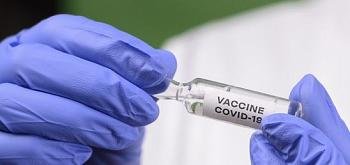DARPA funded implantable biochip can potentially be used to deploy Moderna’s mRNA vaccine
In a bid to try to battle the ongoing Wuhan coronavirus (COVID-10) pandemic, the Defense Advanced Research Projects Agency (DARPA) is funding the development of an implantable biochip that could be deployed as soon as next year. The chip is said to be able to deploy an experimental new vaccine, developed jointly by Moderna and U.S government, that could change human DNA.
The chip and the vaccine built on a breakthrough made by then-Harvard University professor and eventual Moderna co-founder Derek Rossi in 2010. In his discovery, which the now-retired scientist says came about purely by accident, Rossi claimed that he found a way to “reprogram†messenger ribonucleic acid (mRNA) – the molecules that carry genetic instructions for cell development in the human body.
The promise provided by Rossi’s breakthrough was such that it allowed him to co-found Moderna with private equity firm Flagship Pioneering. The company then attracted almost half a billion dollars from the federal government to begin developing vaccines using the new technology.
Biochip could be used to deploy vaccine
In a preliminary report last July funded by the National Institute of Allergy and Infectious Diseases (NIAID) and the National Institutes of Health (NIH), Moderna’s mRNA-1273 vaccine was found to have “induced anti–SARS-CoV-2 immune responses in all participants and no trial-limiting safety concerns were identified.â€
Despite this, however, one obstacle to the deployment of Moderna’s vaccine is the method of delivery. While Moderna is developing its own system, it’s unlikely to get Food and Drug Administration (FDA) approval any time soon. Enter Profusa, which is developing a nanoscale biochip that can detect symptoms of an infection.
Profusa’s biochip is made using a technology called “hydrogels†that were a product of the “In Vivo Nanoplatforms†(IVN) program that DARPA’s Biological Technologies Office (BTO) launched in 2014 to develop implantable nanotechnologies.
These hydrogels are soft, flexible nanomachines that are injected beneath the skin to perform monitoring. This hydrogel includes a specially engineered molecule that sends a fluorescent signal outside the body when it begins to fight infection. This signal can then be detected by a sensor attached to the skin that can then be sent to an app or even to a doctor’s website.
When it was first tested in 2018, this hydrogel was being used to measure glucose, oxygen and lactate levels. However, this past March, the company quietly announced that it was conducting a study to see if the technology could be used to detect respiratory diseases, including COVID-19.
More importantly, Profusa’s biochip is expected to receive fast-track authorization from the FDA by early 2021. With this in mind, some are speculating that the biochip will more than likely be the candidate for the mRNA vaccine’s delivery.
Comments
There are 0 comments on this post






